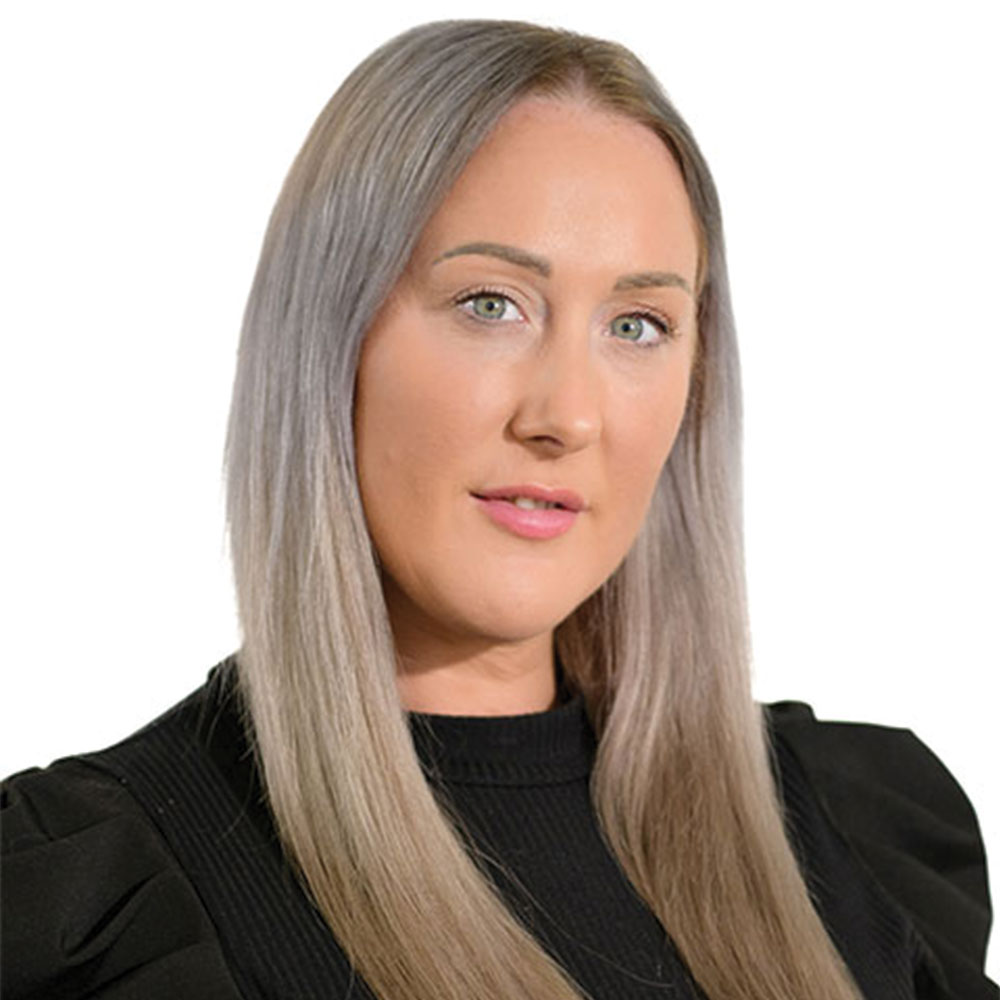Written 31st October 2023 by Ruth Peters
The specialist Olliers pre-charge team recently held a panel discussion in relation to disclosure of material from family proceedings during a criminal pre-charge investigation.
Olliers’ Managing Director Matthew Claughton chaired the panel. Members of the specialist pre-charge team involved in the discussion were Nicola Bruce, Anne-Marie Nicholls and Toby Wilbraham.
The purpose of the panel’s discussion was to canvass different views in relation to how material from family proceedings can impact upon criminal investigations. Senior Associate Anne-Marie Nicholls has joined Olliers relatively recently having been a senior lawyer at the Crown Prosecution Service for many years and provided valuable insight from a prosecution perspective. Similarly, Nicola Bruce also spent many years at the Crown Prosecution Service and is now one of Olliers’ senior lawyers within the pre-charge team. Head of pre-charge Toby Wilbraham was able to discuss Olliers’ approach to pre-charge engagement as a leading firm undertaking this type of work.
The pre-charge panel
Anne-Marie Nicholls
Anne-Marie recently joined Olliers having been a Senior Crown Prosecutor at the Crown Prosecution Service. She spent seven years as a specialist prosecutor within the Rape and Serious Sexual Offences Unit (RASSO).
Anne-Marie was the CPS North West Area Lead in cases involving domestic violence for a period of ten years and has experience of pre-charge decision making since 2006 when the charging scheme initially commenced.
Anne-Marie has in excess of 17 years experience of pre-charge advice and preparation. She has extensive knowledge of the process from a prosecution perspective.
Nicola Bruce
Nicola held various lead roles within the Crown Prosecution Service as a Senior Crown Prosecutor. She was involved in dealing with allegations of hate crime, domestic abuse and youth crime. Nicola was specially trained in Rape and Serious Sexual Assault allegations (RASSO) and was responsible for providing pre-charge advice for many years to the police from its inception. Nicola re-joined Olliers in January 2023 bringing with her a wealth of knowledge experience and the advantages of having worked as both a prosecution and defence lawyer.
Toby Wilbraham
Toby heads up Olliers’ specialist pre-charge department. Toby specialises in pre-charge engagement under the framework created by the Attorney General’s Guidelines on Disclosure 2020. Due to his experience in the pre-charge sector he has developed an internal accreditation scheme for Olliers colleagues to develop their expertise in pre-charge engagement. Toby undertakes many cases involving intra-familial allegations involving sexual allegations, coercive and controlling allegations and domestic assaults.
Questions posed to the Olliers’ pre-charge panel
- Can family proceedings be disclosed in a criminal case?
- Can a defence lawyer make an application to the Family Court for disclosure?
- What type of material from family proceedings could be disclosed?
- Are the panel familiar with criminal allegations being made in an effort to grant legal aid in family proceedings?
- Olliers’ experience of representing individuals in interfamilial allegations.
- How important understanding about the interaction between family proceedings and criminal investigations is.
Watch the Olliers pre-charge panel discussion on disclosure of material from family proceedings in a pre-charge criminal investigation
INTRODUCTION:
Matthew Claughton: So, today the Olliers’ Pre-Charge team is going to be discussing defending allegations of domestic abuse, particularly in circumstances where there are related, connected family proceedings. So, what I’d like to do first is introduce the panel. So, on my right, we have Anne-Marie Nicholls, who joined us several months ago, having spent close to 20 years as a senior Crown Prosecutor with the Crown Prosecution Service and a significant proportion of that time was spent as a domestic abuse lead and you have significant experience of dealing with judging decisions in relation to allegations of domestic abuse.
Nicola Bruce trained with Olliers but then defected to the Crown Prosecution Service for nigh on 20 years and you have a comparable level of experience of dealing with, pre-charge cases, domestic abuse cases, and you’ve been back with Olliers for close to a year and I think I can say you have an exceptional track-record in bringing to an early conclusion pre-charge cases, in other words, avoiding prosecutions in relation to our clients.
Toby Wilbraham is effectively the director of pre-charge engagement at Olliers. Toby runs the Olliers’ Academy, and accredits, members of the firm. In relation to pre-charge, work and Toby has a huge level of experience having been with the firm for in excess of 25 years.
So, what I’d like to do is turn to specific issues in relation to family proceedings. Start by asking, perhaps Nicola.
Q. Can family proceedings be disclosed in a criminal case?
Nicola Bruce: A defendant cannot use family court material as part of their case. They can let their defence solicitor know about this material, but they cannot rely on it as part of their defence, because it’s classed as private and confidential to the family court, especially where it’s where there are proceedings involving Children, and to be able to rely upon that material to support a defence would need consent of the family courts.
What I normally do in that situation is I would let the officer know a pre-charge engagement that there are family proceedings ongoing and that we understand that the complainant may have been inconsistent in some of the information she’s provided in those family court proceedings.
It’s then for the officer and the CPS to approach the family court to obtain that material, which would amount to third party material for the defence to disclose it or use it as part of the defence could amount to a content of court without obtaining authority from the family court to do it. So, we need to be careful with that, but we can, our clients can let us know about this material, but we just need to be careful about how we then go ahead and use it or rely upon it.
Matthew: So, Nicola, you’ve described, as a defence lawyer, asking the police to make an application as a defence lawyer. Anne Marie…
Q. Could a defence lawyer make the application to the family court?
Anne-Marie: It would normally be done by the police or by the prosecutor, and it may take quite some time for those papers to come through. If your client gives you, perhaps a judgment from the family court, he’s entitled to do that. You’re entitled to know what’s in it, but you can’t use it as Nicola said. So, any disclosure from the family court needs to be strictly observed by all parties and cannot be used, as Nicola said, without court permission.
Matthew: Okay.
Q. Typically, what material could or would be disclosed?
Anne-Marie: Without the court permission, third party material is quite important in a case. So gathering of that kind of material, which would include medical reports, CAFCASS reports, social services reports, all point towards a history between the two people and would be relevant.
Matthew: Yeah. Just to stop you there. So CAFCASS, that is, I think the Children and Family Court, Advisory and Support Services material, and that can often be quite detailed, can’t it?
Anne-Marie: Absolutely, yeah that kind of information that you would find in a CAFCASS report can be quite explosive for a defence.
Matthew: I was going to say dynamite, so I think we’re on the same page there, yeah. okay. Toby, a lot of clients want to use their knowledge of the family proceedings because they’ve been living and breathing those proceedings, probably frequently prior to police involvement. So, how do they use their knowledge to discuss and explain things with their criminal lawyer, their defence team?
Toby Wilbraham: Well, they can explain what’s been in reports before, and other information like that. They can also provide copies of these. I often get sent copies of CAFCASS reports and other reports from the family proceedings to put on the file. As has been discussed already, I cannot send that to the officer in the case as much as I would like to do so, because the information is very useful a lot of the time.
But I can refer to the reports and ask the police to obtain this material and explain to the police officer why that material can be relevant to the case. In my view, there’s two slightly different types of material that these reports and any family reports can contain. One is inadmissible material, which is information that is useful to a case but couldn’t be used in criminal proceedings.
That’s often the opinion of experts on the family proceedings, so that will be the opinion of social workers and other people that know both the parties in the case. A good example would be an opinion of a social worker who says that the complainants in the criminal allegation is somebody that might engaged in a campaign of parental alienation or might be somebody that is not giving consistent accounts to them in relation to not just this case, but a number of different things.
So that is an expert’s opinion of a person. It’s not a strictly speaking admissible, but it would, it can be useful for the police to determine the credibility of a witness and see how viable a prosecution would then be. If the evidence suggests that the, the complainant isn’t a credible witness, for example, which often it is that, that then they might be less inclined to prosecute.
Matthew: Just to stop you there, because under the code for Crown Prosecutors, a prosecutor, can look at inadmissible evidence because, and that will inform the decision as to whether or not there is a realistic prospect of a conviction. Yeah. Okay.
Toby: And, and under the, the test for prosecuting, they’re looking at a witness’s credibility. So if the credibility is undermined by this evidence, albeit it being inadmissible, it can affect the decision to prosecute. So that’s the first thing that, that can be useful. The second thing is potentially admissible evidence. Now, what the admissible evidence is, is accounts given in relation to the criminal allegation, it’s inconsistent with the statement or account given to the police.
Although that’s in the family proceedings context, any inadmissible statement is, sorry, any inconsistent statement is potentially admissible in criminal proceedings. But again, it can’t be used on the face of it without the family court’s permission, but the police can be invited to obtain that through the CPS, whichever procedure they wish to do so.
And…that would probably count as unused material for the police and the prosecution, but that would be potentially useful for defence if it gets prosecuted to court, as admissible evidence in criminal proceedings.
Matthew: And that could be explosive, or dynamite.
Toby: Well, I’ll give you a good example. I had a case, one of the first cases I dealt with, which involved family proceedings at a pre-charge stage, was of a male defendant who was in a bitter, contested, contact proceedings in the family proceedings for his daughter with a complainant, his ex-partner.
She had already in the family proceedings given an account on a certain date which the allegation related to, but had subsequently stated that on this date, in addition to what she previously said, the client had allegedly raped her. And we knew that she hadn’t said this previously in an initial statement she’d given, so we could refer the police to go into the family proceedings to apply for this material and have a look at it, because it was a statement she’d given initially, where she made no mention of her being raped. And you’d, you’d think that would be fairly significant and something somebody would remember if it was true. And the police looked at that, got this material, and they didn’t prosecute the client based on the material in the family proceedings.
Matthew: And it’s not only the facts that come out in the family proceedings. Sometimes it could be the chronology. For example, I’ve had clients who’ve said that this has gone to a police matter because things have gone sour in the family proceedings. For example, I’ve made an application for contact that is opposed. Do you think that could be relevant? Simply the chronology of events in the family proceedings rather than the facts.
Anne-Marie: I think timing can be key and Toby just gave a really good example of that, the fact that a rape allegation wasn’t made during the family court proceedings and then was made as a result of a contentious contact application is something that you would be alive to and extremely careful of when deciding whether that complainant was credible or not.
Toby: Can I just mention this as well? It’s an issue we get, I think all of us will have got in some criminal proceedings at some time and what it is, is effectively a complainant can be weaponising, that’s the word I use. Family criminal proceedings to benefit them in the family proceedings and the chronology is key to that.
And I’ve seen it time and time again, in bitter family proceedings over disputes over money sometimes in divorce proceedings or also in contact with the children where the complainant doesn’t want the suspect to have contact with the children and weaponises family proceedings to avoid that happening or at least trying to do that and it happens all the time, unfortunately.
Matthew:
Q. Do any of the panel have experience of a complaint of domestic abuse being made, and then it’s suggested that that has facilitated a grant of legal aid in the family proceedings. Are you familiar with this?
Nicola: It does seem to be quite common that this, that this situation happens. I’ve known clients who have told me that they believe the complainant has only made an allegation of rape to assist obtaining legal aid, because without the legal aid you wouldn’t be able to enforce contact proceedings and it’s always in bitter contact proceedings as well over children. But yeah, that’s definitely something that I’ve come across quite a few times with clients, because without, where there’s no evidence of Domestic abuse, they wouldn’t get legal aid, you see, so that’s how the client feels that they’re making this allegation just to get legal aid.
Toby: There’s more to it than that as well though, because if somebody is the perceived victim of domestic abuse, they not only can get legal aid in proceedings, as you’ve already described, they can also get, as I understand it, priority housing on the housing list.
So if they want to split from their partner and they’ve got nowhere to go, the complaints of domestic abuse assist them to get into social housing as a priority much quicker than it would do otherwise. Now, obviously, people suspect we’re being cynical and suggesting this, but I’ve certainly had cases where the motivation seems to be to not only get legal aid, but also to get on the priority housing list, to rehouse, to move away from a partner they simply don’t get on with anymore. Not necessarily because they’ve committed any criminal offences, they just want to split, and that seems to be a relatively easy way of doing it.
Nicola: Also, as well, where there are criminal allegations, there’s bail conditions are likely to be put in place to prevent the client from having contact with the children.
So it means that the complainant has full contact or full custody of the children, and the client will probably have no contact whatsoever due to the bail conditions as a result of allegations of domestic assault or some type of abuse.
Matthew: Okay,
Q. Toby, do you have any other experience of representing individuals, in let’s call them intra familial allegations that you want to tell us about?
Toby: I think it’s worth explaining what this kind of context is as well, because often people don’t appreciate what domestic, what classes a case to be called domestic. Any kind of complaint against somebody, pretty much if they’re related, even if they were a former partner, can class as a sort of domestic violence / domestic abuse case.
So it’s a lot of cases one wouldn’t expect to come under that umbrella, fall into it. I’ve given a couple of examples already of cases I’ve dealt with. I had one recently, in the last year or so, where, a client inherited some money. Ex partner went to court to try and get a better separation settlement, a better monetary settlement. That didn’t succeed. They then made a complaint against them with malicious communication, which fell under the domestic abuse umbrella and as I saw it, that was motivated by the failure in the settlement to their advantage. It seemed to be malicious, but that investigation went on for a year, before it was ultimately no further actioned by the CPS.
Again, I suspect that the police in that case weren’t willing to make a decision because of…I think domestic abuse cases are politicised, and rather it went to the Crown Prosecution Service. But that’s a year out of the client’s life where they were suffering, mentally from that, became noticeably withdrawn, clearly suffered from mental health issues in, in that year through these allegations, which will prove to, subsequently to be false and he had no recourse for that at all.
Matthew: Nicola, do you have any examples of this?
Nicola: One example I have also going back to what I mentioned about bail conditions, a client, she left, clearly unhappy, left with the children, and then started family proceedings and criminal proceedings started a criminal investigation.
Ongoing family matters for him to have, trying to have contact with the children. I made bail applications, bail representations to the officer because it appeared at this point that the family proceedings were impeding any chance of the judge considering contact for my client. The police had no concern about contact if social services were present. So representations were made regarding bail to allow contact with our client if a member of the social of the family court were present, such as a guardian or the representative of the family court. So there are other things we can put in place to help the client at that stage, because like this client in particular was struggling mentally.
It’d been ongoing for up to seven months. He hadn’t seen his children at all during that time, and it was very difficult for him. So just think about what steps we can take to help during that process is important, but ultimately gathering as much material as we can for pre-charge engagement will hopefully bring the matter to a conclusion anyway, sooner rather than later.
Matthew: Okay, and so we’re doing this, as pre-charge specialists, during the process of pre-charge engagement and ultimately our objective is to make representations against charge, arguing that the charging standard, as required by the Code for Crown Prosecutors is not met.
Q. Do you think that an increased level of understanding about access to family proceedings and the interaction between family proceedings and criminal investigations can only assist in achieving better outcomes for people who are under investigation for criminal matters?
Nicola: Yeah, I do believe so I think the example that Toby gave as well and, and Anne Marie explained the material that will be available. If we could have more access to that and use that material as part of pre-charge engagement, it would make the process so much quicker. Rather than having to go down the process of the CPS and to apply to the court for the material.
Because it’s out there, it’s often inconsistent comments, like we said the timeline, the chronology is all different. So if we could use that early in pre-charge engagement, it would definitely make a difference to the process.
Toby: I think there’s also, we’ve talked previously about regional approaches to policing and how it’s different in each area. I think some police forces deal with this issue better than others as well. Because as I understand it, officers in some regions have what’s called family liaison police officers. And the family liaison police officers are experienced in dealing with these types of cases and are used to dealing with family proceedings and obtaining that material.
They’re liaised with the social services and the CAFCASS representatives and they’re familiar with the process. But, so, if you’re dealing with a family liaison officer, I think the whole process is easier and they understand it better. But I think if you’re dealing with a region which doesn’t have these types of police officers and it’s a normal police officer and I don’t mean any disrespect by saying that, they’re not familiar with the proceeding.
So in that situation, it’s much more useful what we do because we’re trying to guide the police officers to obtain this material, which is useful not only for us and our clients, but for the police and their investigation to get more informed information about it.
Matthew: Because ultimately, our objective as defence lawyers is to assure the best possible outcome for our clients. But also, from a police perspective and a state’s perspective, it’s important that the right people are prosecuted for the right offences every time and the wrong people are not prosecuted.
Toby: I think the good expression is like a filtering exercise, isn’t it? We filter out cases at an early stage possible, which aren’t going to succeed in court, which otherwise, if we didn’t get involved, could end up in court. And we’re trying to avoid that happening in the first place.
Matthew: Toby, thank you. Nicola and Anne-Marie, thanks.
Olliers Solicitors is firmly established as one of the UK’s leading criminal defence and regulatory law firms, specialising in the defence of individuals, businesses, and other organisations across a broad range of corporate and financial crime, regulatory offences, serious crime, sexual offences, asset recovery, inquests and public inquires.
We are firmly established as one of the UK’s leading criminal defence law firms specialising in pre-charge investigations. Nationally few firms can match our expertise and experience.
We are ranked by both the authoritative guides to the profession, namely the Legal 500 2024 and Chambers Guide 2024. We are a Times Best Law Firm 2024. We are the current Manchester Legal Awards Crime Team of the Year, an award we have won six times. We have won Law Firm of the Year at the same awards twice in the last three years.
Our Managing Director, Matthew Claughton is a current Legal 500 Northern Powerhouse Criminal Lawyer of the Year. He is also the only two-time Partner of the Year at the Manchester Legal Awards. Fellow Director, Ruth Peters is a former Solicitor of the Year. Many of our lawyers are leaders in their field.
Contact our specialist criminal lawyers
- About the Author
- Latest Posts
Ruth leads the business development team at Olliers across all areas of specialism. Ruth was the Manchester Legal Awards 2021 Solicitor of the Year.
She has been with the firm for more than 19 years and has an enviable level of experience across the entire spectrum of criminal defence.





